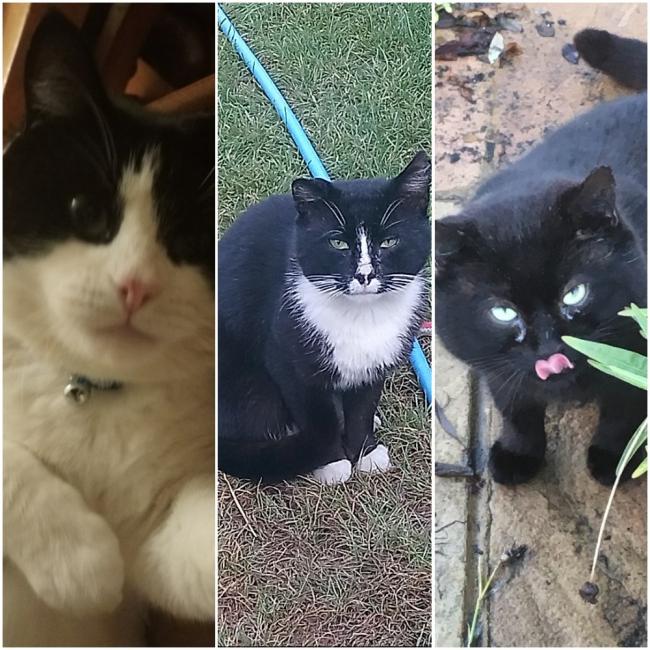A WOMAN accused of 'stealing' cats has defended taking strays from the streets and warned of a feline HIV 'hotspot' in East Oxford.
Lynette Basha has so far trapped and brought for vet checks three cats from near her Hillsborough Road home, all of which have been diagnosed with FIV – the cat equivalent of the immune system-damaging disease.
But since sharing her efforts online she has been met with accusations she has 'stolen' cats that belonged to others and called 'vile', with messages claiming all three animals have been put down.
Also read: Family told to re-home dog after cat incident
She said: "I'm not stealing cats. They are strays and were checked for microchips. Two of the cats have been rehomed and the other was sadly put to sleep by Iffley Vets.
"That was not a decision I made though – I'm doing this to help cats not hurt them."
Vet Katherine Morrison from the practice said it was the centre's policy to euthanise FIV-positive stray cats, if a charity was not able to take them on, as they could not be released.
Ms Basha began her efforts last year when she became concerned about a stray black cat who she called Jupiter who regularly visited her Littlemore garden and was having problems with his eye.
She said: "The plan was always to take him to the vet, have him neutered and take him home but it turned out he had FIV, meaning he couldn't stay with me as I have another cat who is not infected."

From left, Felix, Sooty/ Charlie and Jupiter. Pictures: Lynette Basha.
Charity Cats Protection, which provided the cages and funding for neutering the cats, recommends FIV-positive animals be kept indoors and separated from other cats not infected to avoid spreading the disease.
Ms Basha, who is currently recovering from brain cancer, took in another stray in June who she called Felix, who initially tested clear of the disease.
But last month the black-and-white cat got into a fight with another stray, who Ms Basha called Sooty.
Read again: 13 bizarre animal rescues in Oxfordshire
Both were subsequently diagnosed with FIV, with Felix having to be rehomed by Cats Protection and Sooty put down.
Ms Basha said: "It was quite upsetting as I had become close with Felix. There seems to be a hotspot in the area for FIV so I posted a warning on the website Nextdoor.
"There were lots of positive comments but a few people started attacking me."
One of those who raised concerns about Ms Basha's actions was Sue Nicholls, who recognised a picture of 'Sooty' as Charlie – a cat she had been feeding for two years.
Mrs Nicholls, 62, said: "It was upsetting to find out what had happened to him. If I'd known we could have done something but it's too late now.
"I don't know why she's doing it but I would urge anyone who has a cat they look after that they think is a stray to get it microchipped."
Ms Basha said she had a lot of sympathy with Mrs Nicholls' situation but that, in general, people needed to take more responsibility for the cats they encounter.
She said: "I would argue if you are looking after a cat that you think is a stray but don't take the extra step to have it microchipped or treated at the vet, then how much do you really care about the cat and its quality of life?"
Also read: Town names its cutest pet - can yours beat Chloe the spaniel?
She added that, despite the online abuse, she planned to continue taking stray cats to the vet.
A spokesperson for Cats Protection confirmed Ms Basha had been aided by the charity, saying: “The lady who trapped the cats is not a Cats Protection volunteer, however in 2018 when she asked for our help we found new homes for two stray cats she had taken into her care.
“It’s common for people who care about cat welfare to catch cats believed to be strays so they can be health checked, scanned for a microchip and, if necessary, neutered. Cats Protection can, in some circumstances, help provide financial assistance for neutering cats."
They added Cats Protection keep stray cats for at least 14 days before they are rehomed and make sure 'everything possible' has been done to check cats are actually strays.
This includes checking for a microchip and advertising via posters, local websites and social media.







Comments: Our rules
We want our comments to be a lively and valuable part of our community - a place where readers can debate and engage with the most important local issues. The ability to comment on our stories is a privilege, not a right, however, and that privilege may be withdrawn if it is abused or misused.
Please report any comments that break our rules.
Read the rules hereLast Updated:
Report this comment Cancel